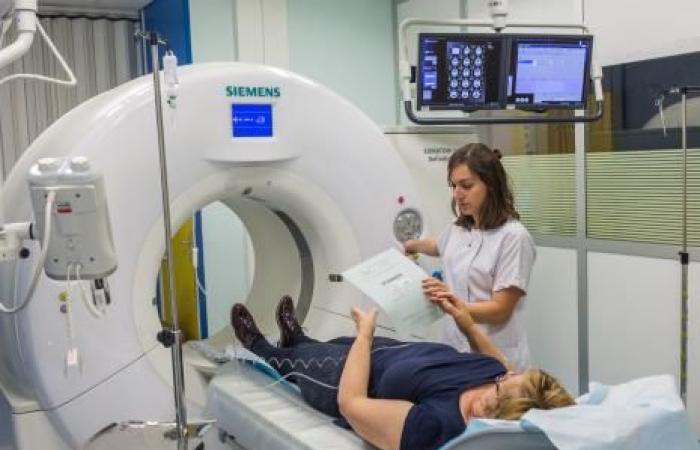A lung cancer screening pilot system will be gradually deployed in 2025. It will offer 20,000 smokers and ex-smokers from 50 to 74 years to pass from low-dose thoracic scanners. Pharmacists will be part of health professionals responsible for identifying patients who could be eligible for it. This is a first step before the implementation of a generalized screening program for lung cancer.
In 225, the National Cancer Institute (Inca) will launch a pilot program for screening for lung cancer “Pulse”. This experiment will offer certain smoking patients and ex-smokers aged 50 to 74, to spend two thoracic scanners at low doses, then every two years. Supported withdrawal support will also be offered to smokers. Pharmacists will be part of the health professionals invited to identify eligible patients and orient them towards the centers associated with the system. Their inclusion will then be finalized by an investigator in a health center, on a digital or telephone platform. “The experiment will be deployed gradually by the end of the year. The organization will be available region by region, via regional health agencies ”, evokes the Inca. Additional information is therefore to be expected.
In total, 20,000 patients aged 50 to 74-smokers and ex-smokers weaned for less than 15 years with cumulative smoking consumption of at least 20 packages per year-will be included. Professor Norbert Ifrah, President of the Inca, is convinced that a number of people are already in « starting-blocks » Because eager to be tested. The Institute will finance the project up to six million euros and the scanners will be taken care of 100 % by the paying organization.
Among the objectives, assess the most effective and surest methods of thoracic scanner screening (duration, frequency, role of artificial intelligence, economic impact, impact on the supply of care, etc.). Several studies have already shown the profits that an organized screening could provide. Detect small tumors early thanks to a low dose scanner in people at risk would reduce mortality by 20 to 25 %. The High Authority for Health had also recommended in 2022 “The implementation of real -life experiments before considering the deployment of a wide -scale screening program”. The leading cause of cancer mortality in France with more than 30,000 annual deaths, lung cancer has a net survival rate of 20 % to 5 years, due to detection in 73 % of cases at an advanced stage.
Health





